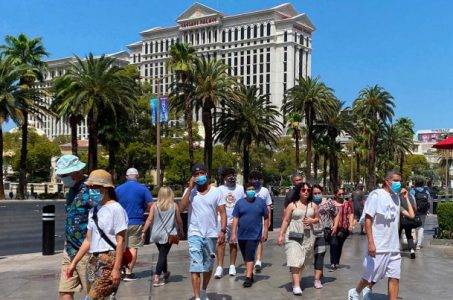Camelot Group Big Favorite in £80B UK National Lottery Race
Posted on: February 10, 2022, 05:30h.
Last updated on: February 10, 2022, 06:11h.
The UK Gambling Commission (UKGC) is backing the Camelot Group to retain its license to operate the UK National Lottery, The Telegraph reports. The regulator has recommended the group be awarded “preferred bidder” status in the ongoing tender process.

Camelot has operated the lottery since its inception in 1994 and has successfully retained the contract on three occasions. Its existing license is set to expire in 2023.
The winning bid for one of the UK’s most lucrative public sector contracts is scheduled to be announced later this month, although the time line could shift. Analysts believe the lottery could generate as much as £80 billion (US$108 billion) during the next ten-year licensing tenure.
Go Local?
The UKGC recommendation comes despite a last-minute plea from Flutter Entertainment boss Peter Jackson. Last week, he urged the government to return the lottery to a domestic company.
Originally British, Camelot has been wholly owned by the Ontario Teachers’ Pension Plan since a 2010 buyout.
Jackson’s claim to Flutter being a “domestic company” requires a stretch of the imagination. Flutter was created through the merger of British and Irish companies, and its HQ is in Dublin. It is in the running for the National Lottery license only by virtue of its acquisition in December of Italian gaming company Sisal.
Sisal had already submitted its bid for the lottery at the time of the acquisition, and is still very much an Italian gaming company.
Nevertheless, critics say foreign ownership is inappropriate and an inefficient way to run a lottery, because the focus is to funnel millions in profits to Canadian senior citizens rather than UK charities.
But after Richard Branson’s Virgin Group pulled out of the race last year, the only homegrown bidder left is Richard Desmond, a publisher of rightwing tabloid newspapers, and formerly, pornographic magazines.
Also in the mix is Allwyn Entertainment, a company controlled by the Czech energy billionaire Karel Komarek. Allwyn currently runs lotteries in the Czech Republic, Austria, Greece, Cyprus, and Italy.
Shrouded in Secrecy
While each bidder has spent millions chasing the prize, they have been banned from lobbying and even from talking publicly about their bids. The ultimate winner will be chosen by the UKGC, based on a “scorecard” process where each bidder is marked on every aspect of their proposal to ensure fairness and deflect lawsuits.
Whoever the winner, the decision is likely to face legal challenges from the losers, as Camelot knows only too well.
During the 2000 bidding process, Camelot experienced a software glitch in its terminals that meant that winnings were miscalculated.
The National Lottery Commission, a predecessor of the UKGC, disqualified Camelot from the process, handing the contract by default to the remaining sole bidder, Richard Branson’s Virgin.
Camelot sued successfully in the High Court and was controversially re-awarded the contract.
Related News Articles
Most Popular
Las Vegas Overstated F1 Race’s Vegas Impact — Report
Vegas Strip Clubs Wrestle in Court Over Animal Names
Most Commented
-
End of the Line for Las Vegas Monorail
— April 5, 2024 — 90 Comments -
Mega Millions Reportedly Mulling Substantial Ticket Price Increase
— April 16, 2024 — 6 Comments -
Long Island Casino Opponents Love New York Licensing Delays
— March 27, 2024 — 5 Comments -
Nearly Abandoned Mall Outside Vegas Soon to Have Only One Tenant
— March 12, 2024 — 5 Comments
















No comments yet